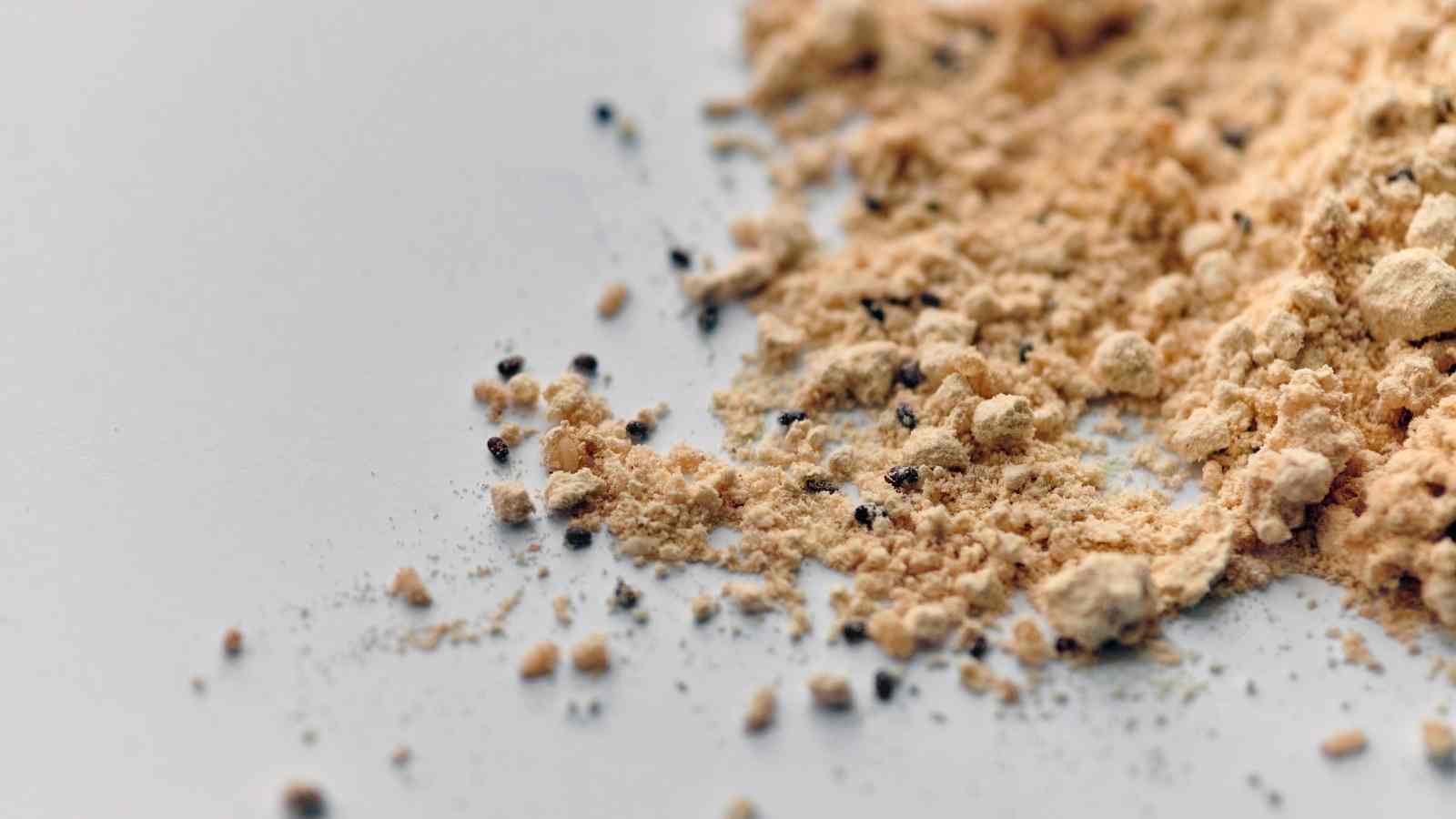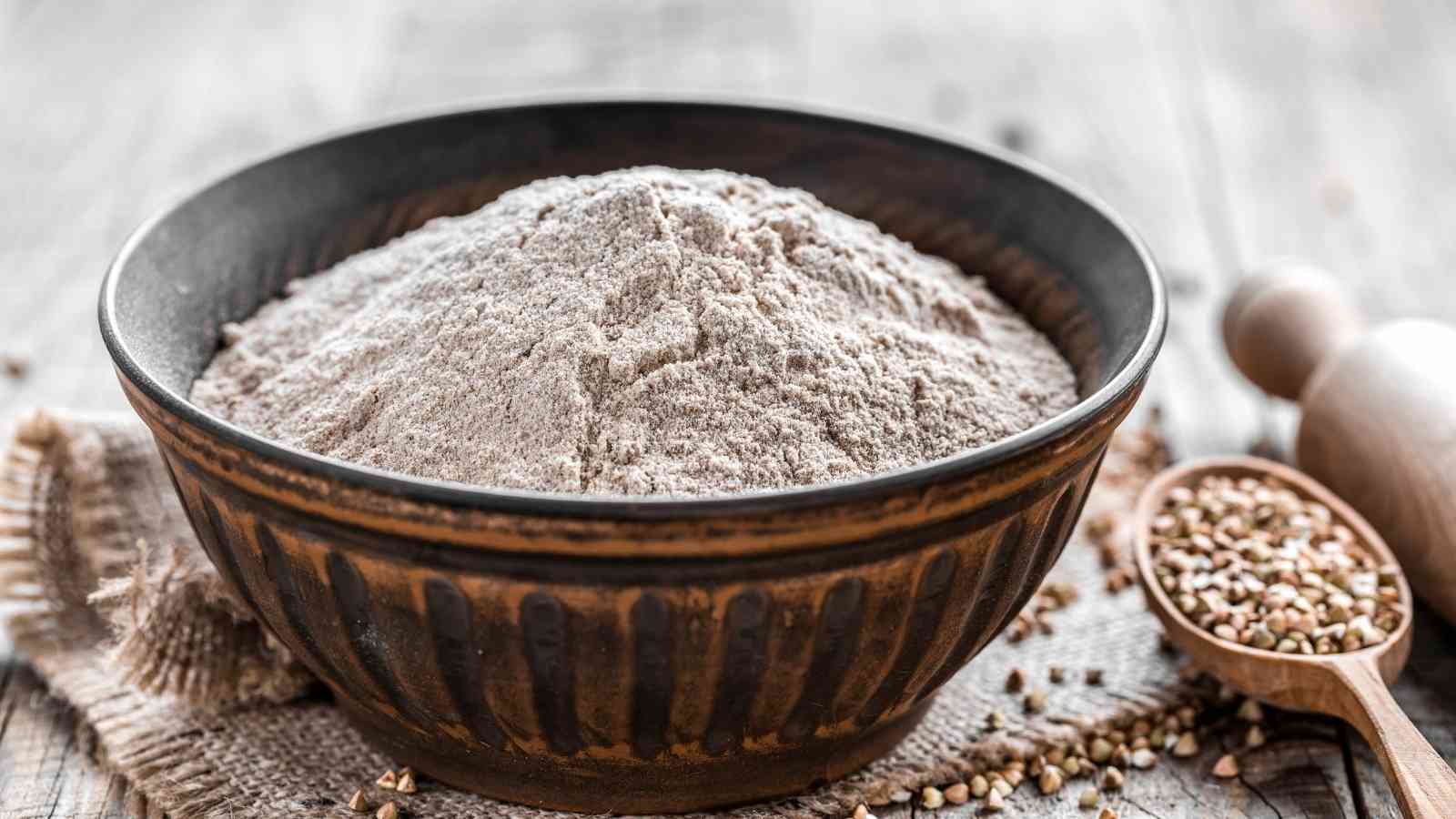Warning: I am a huge fan of baked goodies. Kidding. By now, everyone should be aware of this. If I could, I'd consume all of the baked products. Unfortunately, too much white flour and processed sugars aren't exactly healthy, so I've had to keep a close check on my baked-goods intake.

7 healthier alternatives to white flour in baking (whole wheat, spelt, oats, and more)
Fortunately, I didn't bake much before I began eating more healthily, so I've never baked using white flour or processed sugar. But, since most recipes ask for white flour or refined sugar, I've spent a lot of time figuring out what works and what doesn't. I've previously discussed how to bake without refined sugar and butter, so now I'd like to offer some of my favorite white flour substitutes.
7 White Flour Substitutes + Tips for Flour Substitutions in Baking
I've also created a downloadable cheat sheet to make it simple to substitute white flour while baking on the move. If you're already a subscriber, go to the subscriber-only section, enter your password, and the printable should appear.
I'll start by mentioning that substituting ingredients in baking isn't a precise science. Because various recipes handle substitutes differently, there will always be some trial and error involved. But I do have a few tricks that make flour substitutions a bit simpler for me, and I hope they'll be useful for you as well.
7 Healthy Alternatives to White Flour in Baking
1. Flour
This is the flour substitute I use the most in my baked items. Whole wheat flour is high in nutrition and flavor, and it also provides added fiber to baked foods. However, whole wheat cookies and cakes will be thicker, heavier, and darker than white flour cookies and cakes.
Start by substituting 3/4 cup whole wheat flour for each cup of white flour in the recipe.
2. Avena Sativa (finely ground oats)
I made the mistake of substituting all white flour for oat flour in a batch of muffins early on in my white flour replacement career (heh). They weren't horrible, but they were thick and had an odd gummy/soggy quality to them. Not quite what I had in mind. When I make muffins and pancakes, I now use a combination of oat and whole wheat flour instead of white flour. When recipes just call for a cup or less of flour, it's a bit trickier, but I usually substitute 1/4 to 1/3 of the white flour with oat flour and the remainder with whole wheat flour.
If I wanted to substitute 2 cups of white flour with 1/2 cup oat flour and 1 to 1 1/4 cups whole wheat flour, I'd use 1/2 cup oat flour and 1 to 1 1/4 cups whole wheat flour.
3. Beans
I have to say, I was apprehensive when I first heard about this one since I haven't always been a great fan of beans. There's also the issue of the 'risk of undercooked beans.' However, both times I've tried using beans instead of flour, the results have been very tasty. The most common substitutes are chickpeas and black beans, but I've also had success with black eyed peas. When using cocoa powder, you should obviously only use black beans, since the beans will make your goodies brown. But, other from that, this swap is a breeze.
1 cup white purpose flour may be replaced with 1 cup bean puree as a substitution.
4. Buckwheat Flour
Despite the fact that most of my efforts at utilizing buckwheat flour have failed, I've concluded that it was intended for pancakes. Buckwheat flour, like oat flour, is gluten-free, however, substituting buckwheat flour for all of the white flour in a recipe will not provide the greatest results. However, buckwheat flour pancakes work like magic for some reason.

Substitution Tip: If I wanted to substitute 2 cups of white flour in a recipe, I'd use 1/2 to 3/4 cup buckwheat flour and 1 to 1 1/4 cup whole wheat flour, depending on the recipe.
5. Flours with Nuts
I've only tried this once using almond flour, and it wasn't exactly a positive experience, but I'm going to give it a chance till I try it again. Because nut flours do not rise as well as wheat flours, they should not be used in lieu of all wheat flours unless absolutely necessary. However, if you can tolerate wheat and gluten, I'd make the following modification in place of the oat flour:
For every cup of white flour, use 1/4 cup nut flour + 1/2 to 2/3 cup whole wheat flour.
6. Spelt Flour
I've had a wheat sensitivity for as long as I can remember, but it's never been severe enough for me to avoid wheat-containing foods (unlike my issues with dairy). Last year, though, I began experimenting with spelt flour after a few naturopaths recommended it as an alternative. For the last year or so, I've been baking nearly solely using spelt flour and have been really pleased with the results. It resembles wheat in appearance but differs in a few aspects that make it simpler to digest, which is always a positive.
Substitute 1/2 cup whole wheat flour and 1/2 cup spelt for 1 cup white flour for optimum results. If you want to substitute all of the wheat flour with spelt, do so one-to-one, but lower the total liquid by around 25%.
7. Flour made from coconut
I've avoided baking with coconut flour for a long time since it's so unpredictable. But I know there are a lot of individuals who swear by coconut flour in baking, so it can't be all awful. The problem with this one is that it absorbs a lot of liquid. Attempting to replace wheat flour with coconut flour almost always results in catastrophe. Starting from scratch and developing an altogether new recipe is much simpler than attempting to convert an old one. However, if you absolutely must make a substitute, I've included some suggestions below.
Substitute 1/4 to 1/3 cup coconut flour for 1 cup wheat flour, and double or treble the amount of eggs (or egg substitute) used.




